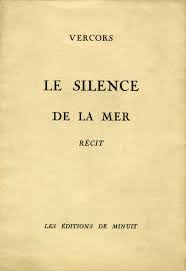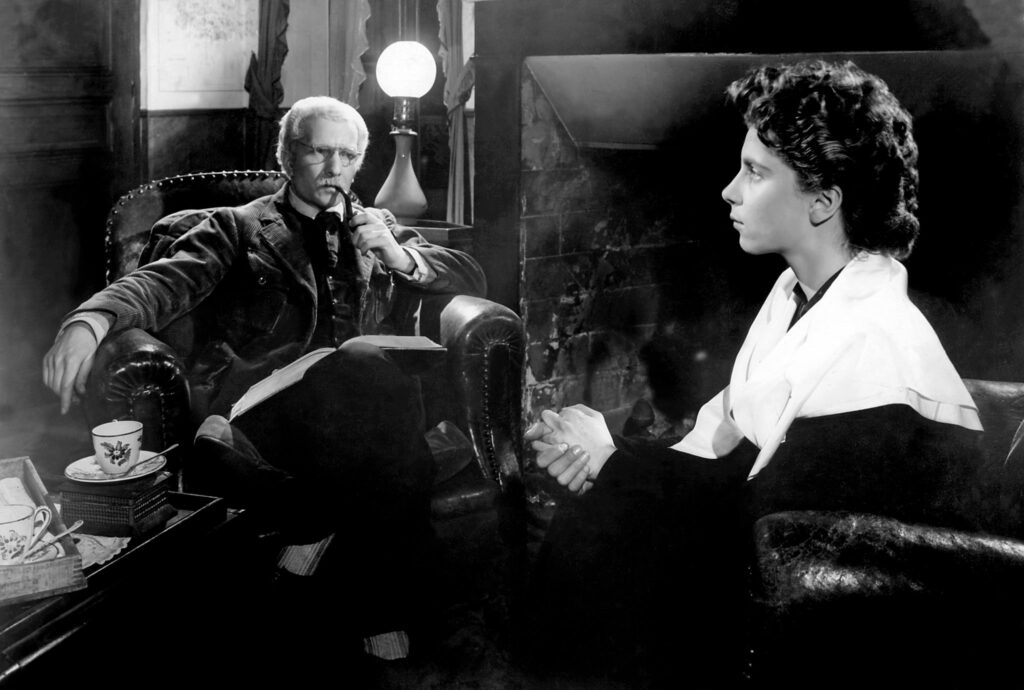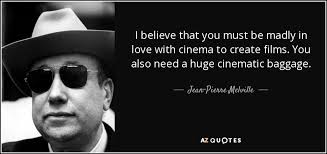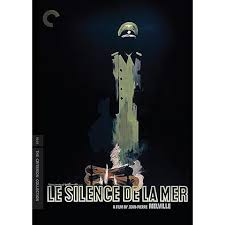Le silence de la mer (1949).
Genre: Drama.
DNA: French.
Verdict: One of a kind.
Tag line: Adieu.

Executive Summary: ‘A niece and her uncle sit in a small room; he smokes a pipe, while she knits. An unwelcome boarder sits with them every night, but they never speak to him, though he talks of his love of music, admiration for French literature, and hope for a united Europe.’
Not exactly a sales pitch to win financial backing in 1946 France, now is it, but it sums up 90% of the film. The putative director, screenwriter, and producer had never made a feature film, nor had he served an apprenticeship in the movie industry and knew nothing of the technicalities of film-making. Yet he went ahead….
It is the fall of 1941 in rural France and the boarder is an artillery officer billeted with them. He is young, educated, polite, and German with perfect French. As he talks, the uncle and niece sit in silence without eye contact. Uncle puffs his pipe; niece sticks to her knitting.
There is a remarkable scene at the local Kommandatura in which nothing is said, and much is reflected in a mirror. Silence and more silence.
In this sea of silence the French pair learn that not all Germans are beasts, and the German learns — when he goes on leave to occupied Paris — that Germans are beasts. His erstwhile army friends, listening to sentimental love songs, talk of reprisals, executions, extermination, and more with enthusiasm. Now is the time to crush France and the French.
Surprise, shock, disgust, these are some of his reactions to his colleagues. And none is more adamant than a friend with whom he went to the music Conservatorium in his home town.

When he returns to the billet after two weeks he is a changed man: depressed, forlorn, disconsolate, bereft in a marvellous scene. He confesses his mistake to the silent jury of two and announces his departure for the Eastern Front. He has sentenced himself to death.
The niece has grown to love this earnest dreamer and as he takes his leave she says one word, her only word, to him: ‘Adieu.’ It is the only word she speaks in the film.
***
The niece is played by Nicole Stéphane (1924-2007) who was Jewish and survived the war in the Resistance before escaping to England where she joined the France Libre. She funded much of the film.
It makes a counterpoint to Le Corbeau (1942) discussed in a recent post.
There is a Belgian version shot in colour in 2004 that is not nearly as austere, and not as focussed. But it gets high praise on the IMDb.
Making of ….
It is characteristic of Jean-Pierre Melville, the director, to concentrate on images rather than dialogue. Little is said but much is conveyed as only film can convey it.
That a novel composed in Occupied France presented an innocent German army officer is a surprise. It was written and clandestinely published in 1942 by Jean Bruller under the nom de guerre Vercors. The book itself, by the way, is shown among others early in the film.
Melville both wrote the screenplay and directed, carried the film stock around and did not much of the heavy lifting himself. He had to apply his interest in judo to this project, that is, to make weakness a strength.
There was no money for a sound engineer so he resolved to use a spare voice over narration by the uncle. That increased the ‘silence’ the German experiences.
There was no money for more than an absolute minimum of location or outdoor shooting so he used stock footage and integrated the German in it with some clever cutting.
There was no money for first rate film stock, so he used old, cheap stock and let the black voids indicate the distances and uncertainties among the characters. The German in particular at the start is filmed in the manner of German expressionist films of the 1920s.

BTW, Jean-Pierre Melville was a pseudonym of the Alsatian Jew Jean-Pierre Grumbach (1917-1973) who took the code name Melville, after the American author, while in the French resistance. Earlier he had been evacuated from Dunkerque. Like 100,000+ other poilus within a fortnight he was repatriated to Bordeaux, as it turns out, just prior to the Capitulation. Rather than march into captivity with more than a million other French solders to be held hostage, he fled and later he and his brother tried to get to England to continue the fight. His brother was killed en route, but Melville made it and joined the Free French Army in the Italian campaign. The rest of his family perished after the Vél d’Hiver Roundup. (Look it up.) All of this left a very dark stain on him, and though he was exuberant in private life, his films are, to say the least, noir.
Finally…
Reading some of the disparaging reviews on the IMDb is a reminder that a hundred and fifty years of free public education is not enough.

